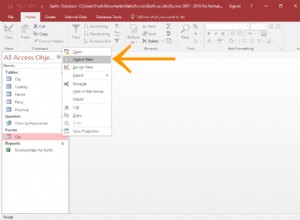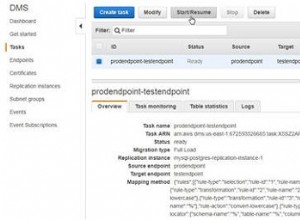J'ai créé une fonction d'agrégation CLR
qui prend un varchar colonne et renvoie toutes ses valeurs séparées par des virgules. En d'autres termes, il joint plusieurs chaînes dans une liste séparée par des virgules. Je suis sûr que ses performances sont bien meilleures que n'importe quel truc T-Sql .
Comme toute fonction d'agrégation, elle peut être utilisée en combinaison avec group by . Par exemple :
SELECT id, name, desc, JoinStrings(CONVERT(VARCHAR(20), category_id))
FROM product p
INNER JOIN category_products c ON p.category_id = c.category_id
GROUP BY id, name, desc
Voici le code C# pour créer l'assembly CLR dans Sql Server 2008 :
using System;
using System.Data;
using System.Data.SqlClient;
using System.Data.SqlTypes;
using Microsoft.SqlServer.Server;
[Serializable]
[Microsoft.SqlServer.Server.SqlUserDefinedAggregate(Format.UserDefined, IsInvariantToDuplicates=false, IsInvariantToOrder=false, IsInvariantToNulls=true, MaxByteSize=-1)]
public struct JoinStrings : IBinarySerialize
{
private char[] sb;
private int pos;
public void Init()
{
sb = new char[512000];
pos = 0;
}
public void Accumulate(SqlString Value)
{
if (Value.IsNull) return;
char[] src = Value.ToString().ToCharArray();
Array.Copy(src, 0, sb, pos, src.Length);
pos += src.Length;
sb[pos] = ',';
pos++;
}
public void Merge(JoinStrings Group)
{
Accumulate(Group.Terminate());
}
public SqlString Terminate()
{
if (pos <= 0)
return new SqlString();
else
return new SqlString(new String(sb, 0, pos-1));
}
public void Read(System.IO.BinaryReader r)
{
this.Init();
pos = r.ReadInt32();
r.Read(sb, 0, pos);
}
public void Write(System.IO.BinaryWriter w)
{
w.Write(pos);
w.Write(sb, 0, pos);
}
}
Voici le code pour créer la fonction (bien que le déploiement à partir de Visual Studio devrait le faire automatiquement) :
CREATE AGGREGATE [dbo].[JoinStrings]
(@s [nvarchar](4000))
RETURNS[nvarchar](max)
EXTERNAL NAME [YouAssemblyName].[JoinStrings]




